Tes people of the year 2018
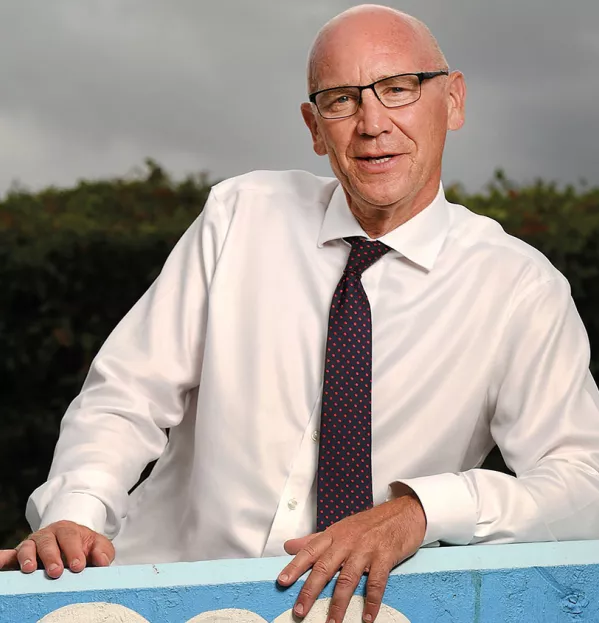
The nights have drawn in and the long, unrelenting autumn term has finally been put to bed. Yes, it’s that time of year again. No, not Christmas. It’s time to reveal the second-ever Tes person of the year.
Education is full of bright, committed, energetic people doing everything they can to make a difference - absolutely packed full of them. There isn’t space here to do justice to the crucial work of the hundreds of thousands of teachers who improve pupils’ lives, day in, day out.
But what we can do is bring you 10 people or groups of people whose efforts have gone beyond what might be expected of their normal working lives, who have made a difference to many, many other teachers and learners in our schools and colleges.
Deciding on the Tes person of the year, it should be said, is an entirely undemocratic and unscientific process. The judging panel is made up of the editors and section heads of Tes magazine, with the deciding vote, if needed, going to the editor, Ann Mroz. Nevertheless, this process has, we feel, produced an admirable list of people who have made 2018 - in many ways a time of adversity - a better year for education. Here’s why.
Tes person of the year: Jules White
(Headteacher and funding campaigner)
This September, something extraordinary happened: 2,000 headteachers marched on Downing Street. These were not angry, politicised activists, but ordinary, sensible headteachers. And they weren’t grumbling about a minister’s conference speech or issuing measured press releases. They were marching, with placards, on the government as part of a grassroots revolt that one national newspaper even likened to the Arab Spring.
It wasn’t unions that organised this uprising. It all came down to Jules White - a self-professed “regular bloke” leading a successful secondary who, one day, decided that he’d had enough of the Department for Education’s “clueless” response to schools’ growing funding crisis.
White, and the heads he inspired to join him on that early autumn day, were criticised for taking time off school and mocked for being too polite.
But they achieved what they set out to do: gaining huge national media coverage about their schools’ financial plight. It is a feat that White has been managing all year. The West Sussex head has in 2018 become the national media’s go-to spokesperson for cash-strapped schools, quoted on everything from the Budget to funding for grammar schools and the DfE’s misleading use of stats.
White has cut through where union leaders can’t. He doesn’t have to take into account the politics of his organisation or carefully consider the pro and cons of speaking out versus insider lobbying. The head of Tanbridge House school in Horsham simply says exactly what he thinks about the reality of the funding problems, of which he has valuable first-hand knowledge. And that plain speaking has had a huge effect.
The WorthLess? national school-funding campaign, which White launched, can justifiably take some credit for pushing the government into a decision, announced after last year’s general election, to boost school budgets by more than £1 billion. This year he has built on that and regularly rallies thousands of other heads across 40 local authorities. He can also, in the ping of an email, reach 6 million families via a national network of WorthLess? members.
White has never joined a political party. Nor has the former secondary modern boy ever taken part in a sit-in or any sort of industrial action. As a student at the University of Essex, a well-known radicalist hotbed, he spurned activism in favour of “playing football, playing cricket and going out”. But when his school was “cut to the bone” and left with “absolutely no money”, while ministers refused to admit there was a problem, White felt compelled act. “I can’t stand bullshit,” he has told Tes.
The school leader has continued in that vein ever since, despite being subjected to “intimidating” messages and behaviour from officials and senior politicians. Jules White is fighting a battle for no personal gain and making a real difference. That is why he is Tes person of the year.
Heather Wright
(Primary teacher and founder, Reading Rocks)
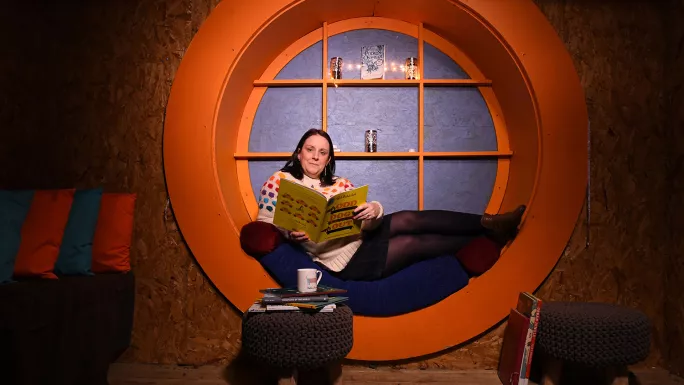
Heather Wright is a primary teacher and leader who has inspired thousands of primary teachers to look at reading in a new light.
Wright, Year 5 teacher and key stage 2 team leader at the District CE primary school in Merseyside, is the founder of Reading Rocks, a movement for teachers based on sharing the love of reading.
Through her blog, Twitter account and conferences, teachers have been brought together to share ideas on great books for their class, write teaching tips, advise on how to promote reading for pleasure - and even to suggest how to teach grammar through dance.
Reading Rocks grew from Wright’s whole-school project, called the Year of Reading, in 2014-15, which aimed to ignite a love of reading in all pupils. The project led to the school being shortlisted for English teacher or team of the year at the Tes Schools Awards 2016, and in October 2016, she hosted the first national Reading Rocks conference at District School.
The movement took off and a second conference was held at the school in October 2017. This year, three Reading Rocks conferences have been held in different parts of the country - a further two are already planned for next year.
Among the 19,000 followers of the Reading Rocks Twitter account are authors Michael Rosen, Tom Palmer and Christopher Edge - which goes to show that she is a woman who knows how to get people positively buzzing about reading.
Jan Dubiel
(Head of national and international development, Early Excellence)

Jan Dubiel, head of national and international development at Early Excellence, a provider of early years resources and training, is one of the most influential people in early years. An assessment expert, he has long defended the expertise that exists within the early years sector and robustly argued for the need for early years to retain its own unique pedagogy.
The former early years lead at the Qualifications and Curriculum Authority also has a deft touch when it comes to dealing with the educational establishment.
It was Early Excellence which, when regulator Ofsted published its controversial Bold Beginnings report late last year, organised a series of free briefings that allowed the report’s co-author, Gill Jones, to discuss her findings with the sector.
But while he may have parlayed an uneasy truce over the report, Ofsted is far from the only front on which EYFS practitioners are feeling besieged and misunderstood. It was Dubiel who noticed that the original plans for a baseline assessment - to be taken by children on entering Reception and used to measure their progress until the end of Year 6 - allowed for an observation-only baseline assessment, which he promptly devised.
The Early Excellence baseline scheme was chosen by about 12,000 schools, but the government’s original plan was scrapped following a damning evaluation report. Now the government is trying again but, this time, schools will not have a choice.
Expect to hear more from Dubiel next year.
Meg Hillier
(Labour MP and chair of the Commons Public Accounts Committee)
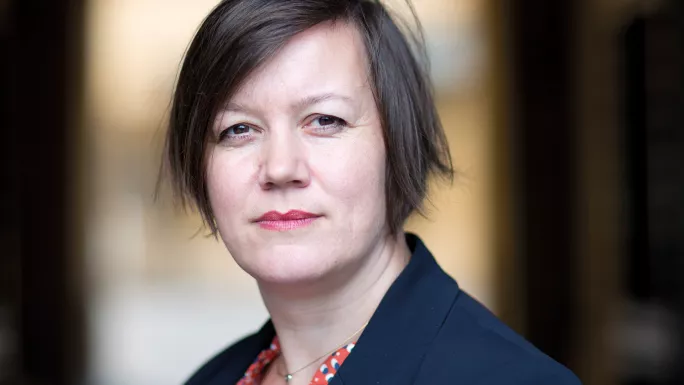
When it comes to the biggest issues facing England’s schools system, Meg Hillier has proved to be one of the sharpest and most incisive critics of the Department for Education.
In a year in which concerns about “fake news” have risen to ever greater heights, the parliamentary spending watchdog that the Labour MP chairs proved invaluable to the education debate with its pointed, yet factual reports, as well as its forensic questioning of key figures.
The Commons Public Accounts Committee (PAC) has not been the only public body to perform a vital oversight role this year - the Education Select Committee has stuck doggedly to its focus on social justice, and the UK Statistics Authority has repeatedly called out the DfE’s questionable use of statistics - but the breadth of the PAC’s work has made it stand out.
On Ofsted, the committee highlighted “clear shortcomings” in the inspectorate’s performance and warned that its credibility could “evaporate” if budget cuts continued to “erode” the level of inspection.
On the teacher-recruitment crunch, the PAC did not shy away from using the word “crisis”, which ministers remain unable to utter, branding the DfE’s approach “sluggish and incoherent”. And on academies, it warned of how “excessive” academy salaries “deprive the front line of vital funds”, while Hillier, in typically robust style, called time on the “chancers” who seek to manipulate the system for their own ends.
DfE permanent secretary Jonathan Slater has said he “relishes” his encounters with the PAC. It is certainly an experience that regularly gives him a rigorous workout.
Baroness Mary Warnock
(Life peer and SEND champion)

If long-time special educational needs and disabilities champion Baroness Warnock remains the most influential voice in SEND, is that fact a sad reflection of the current visibility of the sector or a testament to how transformational Warnock has been for the education of children who find learning more challenging than their peers?
The answer is a bit of both.
It’s been 40 years since she laid down the blueprint for inclusion in the report of the Committee of Enquiry into the Education of Handicapped Children and Young People. In the words of UCL Institute of Education associate professor Rob Webster, “There has not been a more broad-ranging report into special educational needs and disability since the Warnock inquiry [in 1978]… It remains the most comprehensive review of SEND to be commissioned by a UK government.”
There is no doubt that the findings of this report still underpin much of what is done when it comes to SEND in schools. And she continues to be a figure who commands attention when she talks of SEND, as the 40th anniversary of her report demonstrated. This year, she has continued to set the agenda.
But her position in this list is also a reminder that no one has replaced her to carry her work on.
We know so much more about SEND now than we did four decades ago; we understand so much more about how to support pupils who find learning to be challenging. It is time for that to be reflected in a new vision.
And this is a time when SEND funding is being squeezed, Ofsted acknowledges “off-rolling” (the removal of students from a school’s roll in a ploy to artificially boost exam success rates) is happening in schools and the special schools sector is beyond capacity. SEND needs a new voice that makes people listen to these problems and forces change. Baroness Warnock has done her bit - it’s time for someone else to take the baton.
Professor Becky Francis
(Director, UCL Institute of Education)
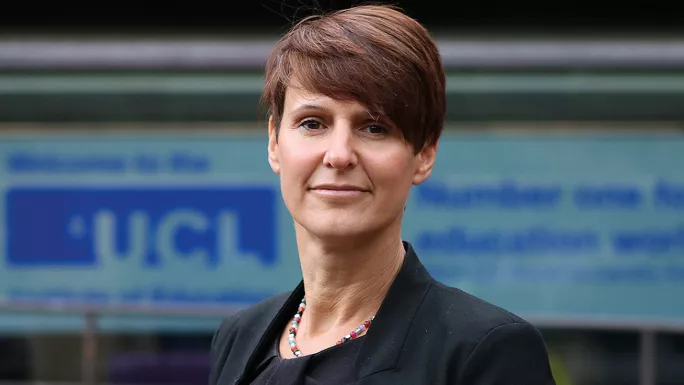
If the profession is going to truly embrace a research-informed approach to teaching, then it will eventually have to face up to the reality that Professor Becky Francis has been trying to present for years: that the setting of students by ability has little positive effect on any student, but has a substantial, negative impact on those in the lowest sets.
The UCL Institute of Education director has reiterated this message consistently, and this year presented new data from an Education Endowment Foundation-funded study that laid out the problem.
Speaking on the Tes Podagogy podcast, she bluntly explained the problem: “We find a disproportionate amount of kids from low socioeconomic backgrounds in low sets and streams,” she said. “And we also know that kids in low sets and streams make poorer progress than those in higher sets and streams. So those children are subject to a double advantage that is being pushed onto them by the education system. The kids that need the best help and the best practice are being disadvantaged by grouping practices. This is why grouping is an issue for social inequality.”
Francis acknowledges the challenges that such findings create for the education system. Setting is how teachers are used to teaching; it would require training and resources to shift to a mixed-attainment teaching methodology and, currently, the research is lacking in how to do this effectively. Timetabling and lesson structure would need to change, too.
But is the difficulty of such a prospect a valid reason to keep doing something that’s been proven to be, according to the research, ineffective? Francis argues not, and she is increasingly making it difficult for schools - which are on a mission to become evidence-based in their practice - to disagree with her.
Clare Sealy
(Headteacher, St Matthias Primary School, and education blogger)
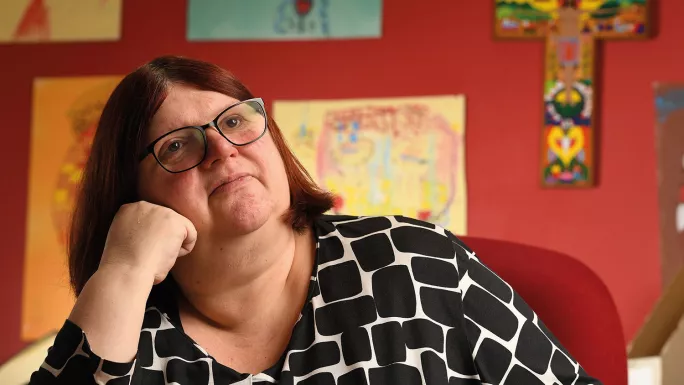
Clare Sealy is in demand. The headteacher of St Matthias primary in East London has been a long-time blogger and popular Tweeter, with her accessible posts on the latest education-related research drawing an ardent following. But since the announcement of Ofsted’s plan to begin assessing a school’s curriculum as part of its inspection process, from September 2019, her star has risen even higher.
Sealy has written extensively about what she believes a primary curriculum should look like, how it should be constructed and the research evidence to support her views (see her recent Tes feature, bit.ly/SealyCurric). Her vision is very much in keeping with the “knowledge rich” approach that has so far predominantly been pushed in secondary, but which seems to be strongly favoured by the DfE at all levels of schooling.
Sealy is not a lone voice in demonstrating the worth of the approach for primary schooling, but hers is by far the best known. Her blogs are cited by policymakers and she has crossed over from Twitter to sell out curriculum events. The position she advocates brings with it a degree of controversy; shunning “fun” in favour of quizzing, prescribing no-frills knowledge teaching and warning against skills-based projects is at odds with what many believe a primary curriculum, and the primary school experience, should be.
Inevitably, Sealy has come in for criticism, but she has dealt with it by patiently arguing her case. The extent to which she persuasively continues to do so will be influential in determining how far the knowledge-rich, traditional approach permeates through primary schools. It’s going to be a struggle to sell it to all, but already it seems her vision, which is aligned with schools minister Nick Gibb’s views, is being picked up by primary schools much more than many may have expected.
Pepper
(Robot)

Pepper the Robot stole the headlines in October when she was called on to give evidence to the Commons Education Select Committee on the impact that artificial intelligence (AI) would have on education and the future employment market.
To be fair, Pepper, whose responses were, well, somewhat robotic, wasn’t just there to make her own contribution to the debate, but also because she has replaced Arnold Schwarzenegger as the public face of the army of robots that is going to take over the world.
Elevating Pepper to our list of education’s most influential people is surely our best way to guarantee that our new robot overlords allow us to keep producing the world’s best education journalism without our jobs being automated.
Even if this near-inevitable hegemony fails to materialise, what has become clear as 2018 has drifted on is that the debate about the impact of AI on schools is about as likely to be resolved in a timely manner as Brexit is.
This has been the year in which concerns about AI moved from being easily dismissed as sci-fi fantasy to being placed squarely centre of the education debate.
Serious voices with serious academic credentials, such as UCL professor Rose Luckin, have been near-onmipresent and their thinking - together with Pepper and its pals - is now taken seriously by educationalists and politicians alike.
Just don’t mention Skynet.
Shakira Martin
(President, NUS students’ union)
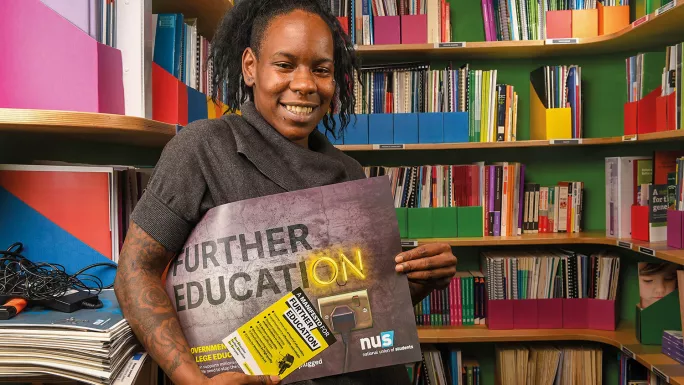
Getting hundreds of college leaders on their feet dancing is no mean feat - especially when you’ve just taken to a conference stage straight after a less-than-inspiring speech by a government minister. It is, however, what Shakira Martin achieved at the Association of Colleges’ annual conference last month.
Like her musical namesake, the NUS national president is known in educational circles by her first name. She is only the second NUS leader to have come through the further education route rather than university; this year, she was re-elected for a second term, easily batting away opposition from the union’s hard left.
Martin has remained firmly focused on raising the profile of FE and calling for more funding, as well as tackling the effects of student hardship. The NUS Poverty Commission, which she set up, published its first report this year.
The single mother - who has spoken openly about her troubled youth - is certainly not afraid of speaking her mind. A meeting she had with post-18 review chair Philip Augar earlier this year must surely be the first occasion on which the former banker had been addressed as “bruv”.
She also managed to lobby Theresa May in person, having crashed the 1922 Committee reception at the Conservative Party Conference. Martin helpfully offered to assist the prime minister with student issues and the social mobility agenda - even stressing that if the prime minister was tied up with Brexit, the government could “do it after”.
Her blunt but constructive approach to relationship building has earned Martin the respect of government officials and FE sector leaders alike, and helped the student body become a credible and respected voice once more.
The students of Marjory Stoneman Douglas High School, Florida

US president Donald J Trump is often compared to a teenager. What an insult to young people everywhere.
At no point has this been thrown into sharper relief than in the aftermath of the Parkland massacre in Florida in February. Watching the speeches, the protests, the passion and the eloquence of the young people of Marjory Stoneman Douglas High School, as they came to terms with one of the worst mass school shootings in even the US’ ignoble history of such events, you could not have failed to become hopeful about the future.
Youngsters whose lives were forever altered by a tragic experience picked themselves up, made their voices heard and pushed for long-overdue reforms to the US’ gun laws - all while attending funerals for their classmates, teachers and friends.
Put simply, they changed the terms of the debate.
Their voices were transported around the globe: their dignity, optimism, anger and eloquence - while Donald Trump humiliated himself time and again - wowed not only the US, but the world.
This is a generation that has grown up with social media and they know how to use its full power to demolish every critic who tries to shame or silence their arguments.
The next time you witness someone attacking the coming generation of young people, remind them of Marjory Stoneman and the extraordinary students who will no doubt change the future.
You need a Tes subscription to read this article
Subscribe now to read this article and get other subscriber-only content:
- Unlimited access to all Tes magazine content
- Exclusive subscriber-only stories
- Award-winning email newsletters
Already a subscriber? Log in
You need a subscription to read this article
Subscribe now to read this article and get other subscriber-only content, including:
- Unlimited access to all Tes magazine content
- Exclusive subscriber-only stories
- Award-winning email newsletters